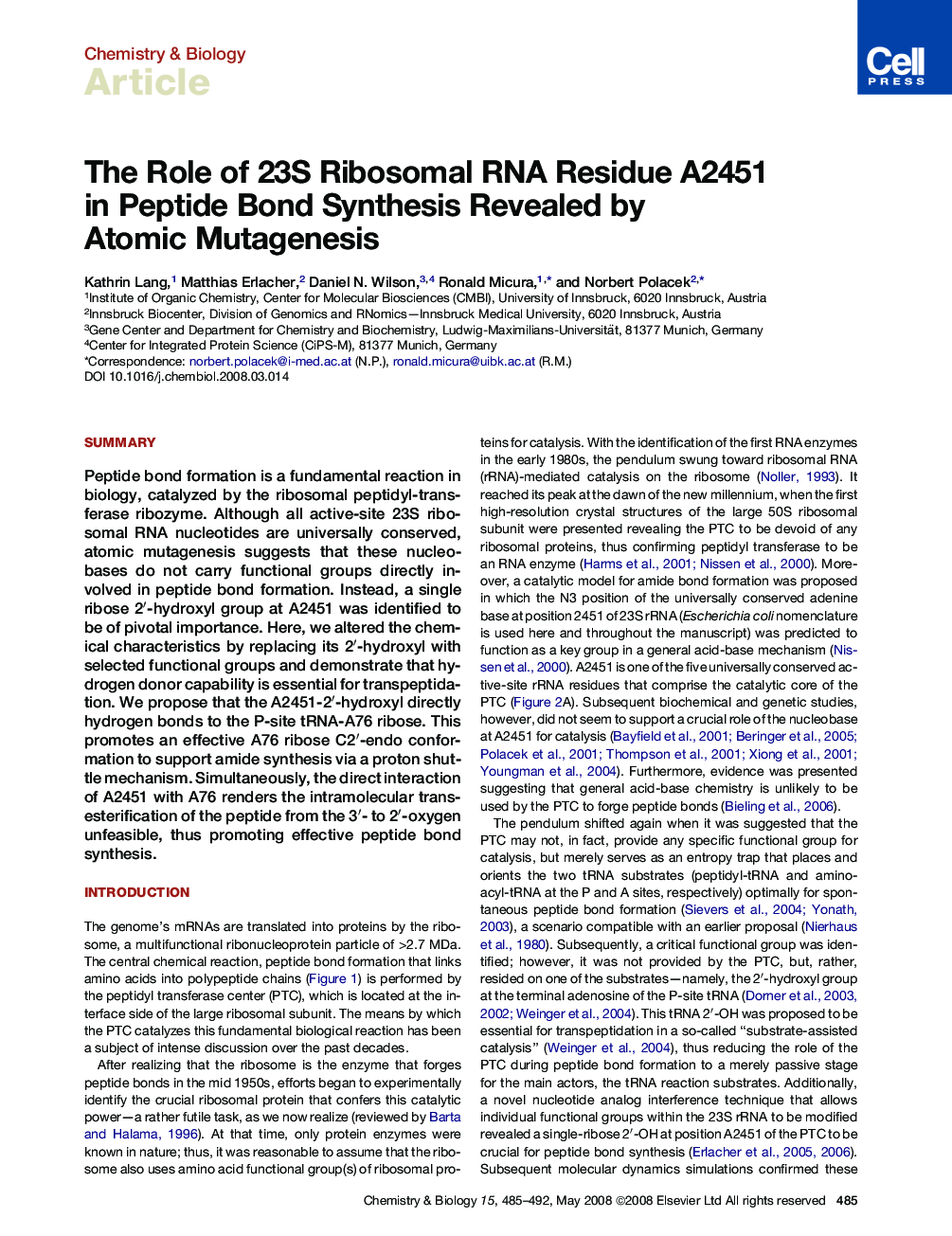| کد مقاله | کد نشریه | سال انتشار | مقاله انگلیسی | نسخه تمام متن |
|---|---|---|---|---|
| 1392773 | 983770 | 2008 | 8 صفحه PDF | دانلود رایگان |

SummaryPeptide bond formation is a fundamental reaction in biology, catalyzed by the ribosomal peptidyl-transferase ribozyme. Although all active-site 23S ribosomal RNA nucleotides are universally conserved, atomic mutagenesis suggests that these nucleobases do not carry functional groups directly involved in peptide bond formation. Instead, a single ribose 2′-hydroxyl group at A2451 was identified to be of pivotal importance. Here, we altered the chemical characteristics by replacing its 2′-hydroxyl with selected functional groups and demonstrate that hydrogen donor capability is essential for transpeptidation. We propose that the A2451-2′-hydroxyl directly hydrogen bonds to the P-site tRNA-A76 ribose. This promotes an effective A76 ribose C2′-endo conformation to support amide synthesis via a proton shuttle mechanism. Simultaneously, the direct interaction of A2451 with A76 renders the intramolecular transesterification of the peptide from the 3′- to 2′-oxygen unfeasible, thus promoting effective peptide bond synthesis.
Journal: - Volume 15, Issue 5, 19 May 2008, Pages 485–492